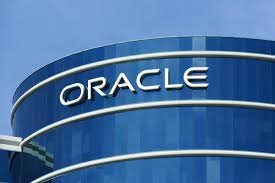Photo by Diggity Marketing on Unsplash
Why a Digital Marketing Budget is Essential
In today’s digital era, where online presence can make or break a company, establishing a clear and realistic digital marketing budget is more crucial than ever. Businesses need a roadmap that outlines their goals and strategically allocates resources to maximize impact. A digital marketing budget not only facilitates financial planning but also helps in setting measurable objectives. This roadmap can assist in making well-informed decisions, ensuring that every dollar spent produces a substantial return on investment. A thoughtful budget is crucial for streamlining operations and optimizing resource allocation to align with strategic goals. With digital channels proliferating and consumer behaviors constantly evolving, a budget plan guides businesses to prioritize the most effective channels and tactics, minimizing waste and enhancing marketing efficiency.
Factors Influencing Your Digital Marketing Budget
Myriad factors influence how your digital marketing budget is allocated. Chief among them are your industry dynamics, target audience profiles, and business’s specific growth objectives. For instance, a B2B company may prioritize different channels and techniques than a B2C business, given their distinct customer engagement pathways. Indeed, understanding how consumers engage with platforms is critical. Platforms with the highest engagement levels should often take precedence in budget considerations, except in cases where emerging platforms offer untapped potential. Economic factors, competitive pressures, and technological advancements should be anticipated to adjust budgetary allocations adeptly.
Analyzing Past Performance
Analyzing past marketing endeavors proves indispensable when sculpting future strategies. Often, the golden nuggets of what worked—or did not—hide in past data. Businesses that meticulously assess previous campaigns gain an understanding of which strategies and messages resonated with their target audiences.
Such analysis strengthens strategic decision-making and emphasizes a data-driven approach, which minimizes risks and enhances the probability of subsequent success. This scrutiny ensures that budgets are aligned with performance insights, promoting a culture of continuous improvement.
Digital Marketing Trends to Watch in 2025
Innovations continuously shape the digital marketing arena, challenging businesses to keep up. In 2025, specific trends are poised to assert substantial influence. One predominant trend is the deployment of AI-driven personalization. This technology allows marketers to tailor content and interactions to the nuanced preferences of individual consumers, thereby enhancing engagement.
Moreover, augmented reality is becoming an instrumental tool for creating immersive experiences. Marketers should strive to incorporate these emerging trends into their strategies, thus ensuring their budgets reflect cutting-edge practices. Keeping abreast of these trends ensures businesses meet and exceed customer expectations, cultivating long-term loyalty and driving sustainable growth.
Effective Budget Allocation Strategies
Strategically allocating your marketing budget can be a game-changer. The most effective approach is a balanced approach that diversifies investment across various digital channels and media types. To properly align budget allocation with your audience’s consumption habits, it is essential to have a thorough understanding of their preferences and communication channels.
Moreover, allocating resources based on projected return on investment can optimize fiscal resources. Businesses should be bold in experimenting and exploring new channels. However, a solid foundation from industry insights and analytics should guide these adventures, ensuring calculated risks that generate substantial rewards.
Tools and Resources for Budget Planning
Utilizing digital tools not only aids in analyzing but also refining marketing campaigns. For instance, platforms like Google Analytics offer insightful glimpses into consumer behavior, helping to laser-focus marketing efforts. Complementary to analytics, digital finance platforms can also prove instrumental in tracking and managing marketing spend, presenting holistic budgeting perspectives. Integrating these tools transforms raw data into actionable strategies, enabling marketers to devise plans with precision, thus ensuring every resource dollar is judiciously spent and effectively leveraged to enhance marketing initiatives.
Real-world Examples of Successful Budgets
Examining successful marketing budgets reveals the power of strategic foresight and adaptability. Many established firms have successfully amplified their digital presence by prioritizing investments in time-tested and innovative channels. Such case studies not only provide invaluable lessons but also inspire organizations aiming to replicate or even surpass these achievements. By rigorously applying insights from these practical examples, businesses can mirror successful tactics, optimizing their financial and strategic outcomes.
Measuring Success and Adjusting Your Budget
Decisive evaluation of marketing ventures is critical in refining strategies and optimizing budget allocations. Organizations can accurately gauge campaign performance against set objectives by employing reliable metrics and analytical processes. This continual measurement identifies successes worth scaling and highlights areas for recalibration and adaptation. The ultimate goal is achieving alignment with market realities and ensuring that marketing efforts deliver on strategic promises, all while bolstering the financial efficiency of budget expenditures.





